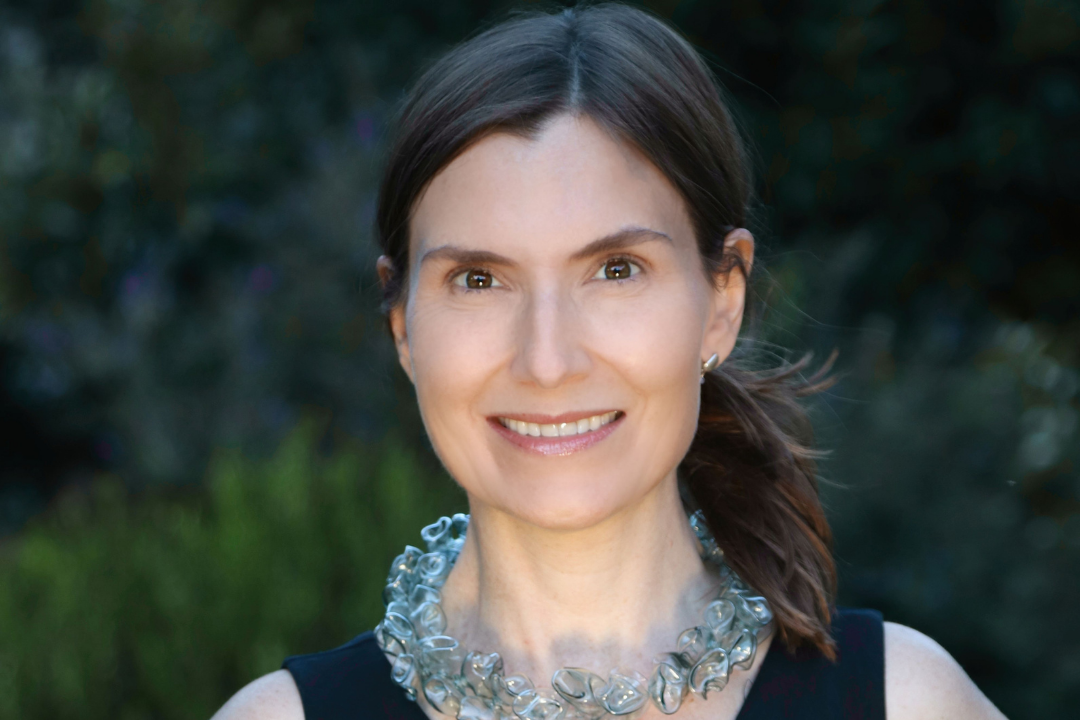At one of the first meetings of the GW Humanities Center last fall, Professor of American Studies and International Affairs Melani McAlister presented her essay on America’s response to the late 1960s Nigeria-Biafra war. Engaging with her in the lively discussion were colleagues from across the humanities spectrum, including Assistant Professor of History Eric Schluessel, whose current work focuses on the persecution of the Uyghurs in modern day China, and Assistant Professor of French Literature Pauline Goul, who is researching environmental crises in Renaissance France.
“We had wildly diverse interests, but that led to interesting discussions and some unexpected suggestions,” McAlister said. “Learning what a specialist on China finds interesting or problematic about my essay was a new kind of intellectual experience for me.”
Launched as a pilot project by the Columbian College of Arts & Sciences (CCAS) last year, the GW Humanities Center brings together humanities scholars to share their expertise while also providing mentored research opportunities for students. The center also hosts humanities-focused events and launched a fellowship program to provide funding support for humanities research. Ten fellows—including two graduate students—were selected this year.
“We wanted to connect all these people doing so much exciting research and create a synergy in the [humanities] community,” said Professor of Italian Lynn Westwater, who co-directs the center with American Studies Professor Jamie Cohen-Cole. “Everybody is enriched by these dynamic interactions.”
The fellows are chosen based in part on a broadly-conceived annual research theme. This year’s theme, “Truth and Lies,” has its roots in the 2020 election. But the fellows are encouraged to add their own varying interpretations, from Professor of English Alexa Joubin’s examination of transgender Shakespeare performances to American studies PhD candidate Francesco De Salvatore’s study of the police in popular culture.
“Humanities needs a home like this one where cutting-edge work can be fostered and nurtured,” De Salvatore said.
Several fellows said the monthly collaboration meetings were particularly crucial for networking with colleagues during COVID-19 the pandemic. “We were all teaching remotely and were generally pretty isolated, and [the center] was a vital source of intellectual community,” Schluessel said. As a new faculty member in 2019, Goul said the virtual interactions let her develop relationships with colleagues she hadn’t met before. “I didn’t have time to make connections with fellow faculty in other departments…having my first year upended by the pandemic,” she said. After working with them remotely through the Humanities Center, “I now feel I can approach them for collaboration or feedback.”
McAlister, who is creating a video archive of oral histories documenting GW life during the pandemic, used the center’s resources to hire Sneeha Bose, BA ’21, as a student research assistant. Then a senior American studies major, Bose’s efforts, including conducting interviews and training student volunteers, was “literally what allowed that project to happen,” McAlister said.
“As an American studies student and researcher, and as a first-generation, low-income student, I was grateful to have the opportunity,” said Bose, who is now a first-year American studies master’s student. “Both the project and my role as a student researcher has made me feel much more connected to the larger GW community than I ever thought I would be.”
Likewise, Assistant Professor of History Trevor Jackson said the funds he received as a Humanities Center fellow helped him complete his soon-to-be-published manuscript on the history of European capitalism. He credited senior research assistant Olivia Niuman for tasks that ranged from checking footnotes and bibliographies to scouring digital banking archives and historical newspaper records.
“I’m an art history and American studies student, so while I don’t deal specifically with economic history, it was a great experience to have under my belt as I look for jobs that require editing experience in the future,” Niuman said. “It also served as a good guide for what proper, rigorous research looks like.”
While the Humanities Center is currently a pilot project, Cohen-Cole and Westwater hope to establish it as a permanent university initiative. As a forum for promoting humanities research and providing student opportunities, they believe the center “is good for individual researchers and good for the institution as a whole,” Westwater said.
“The center has been a long-standing desire within the faculty and we feel lucky to be putting it into action,” she added. “There are a lot of leading humanities researchers [at GW] and this allows us to make their work more visible.”


